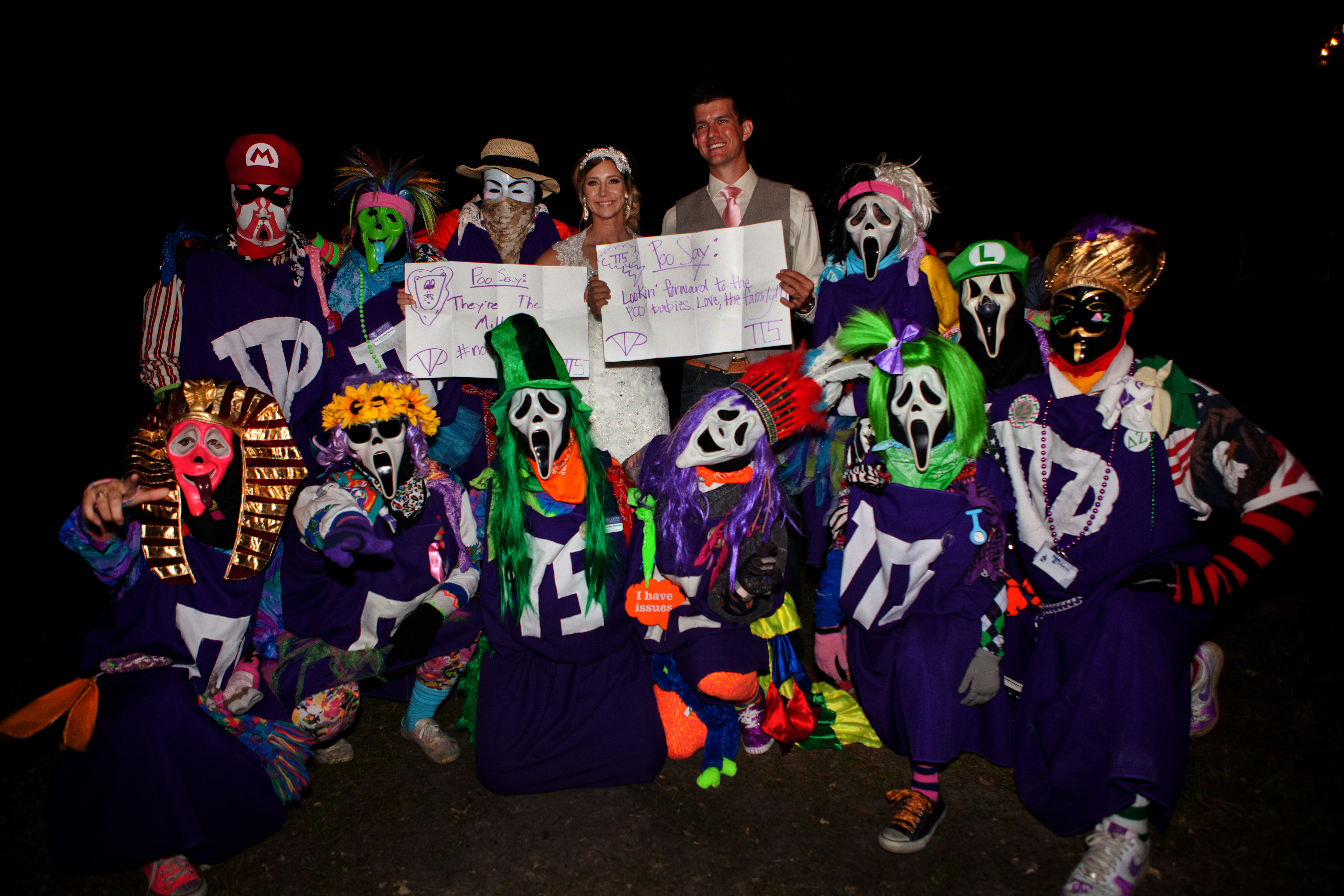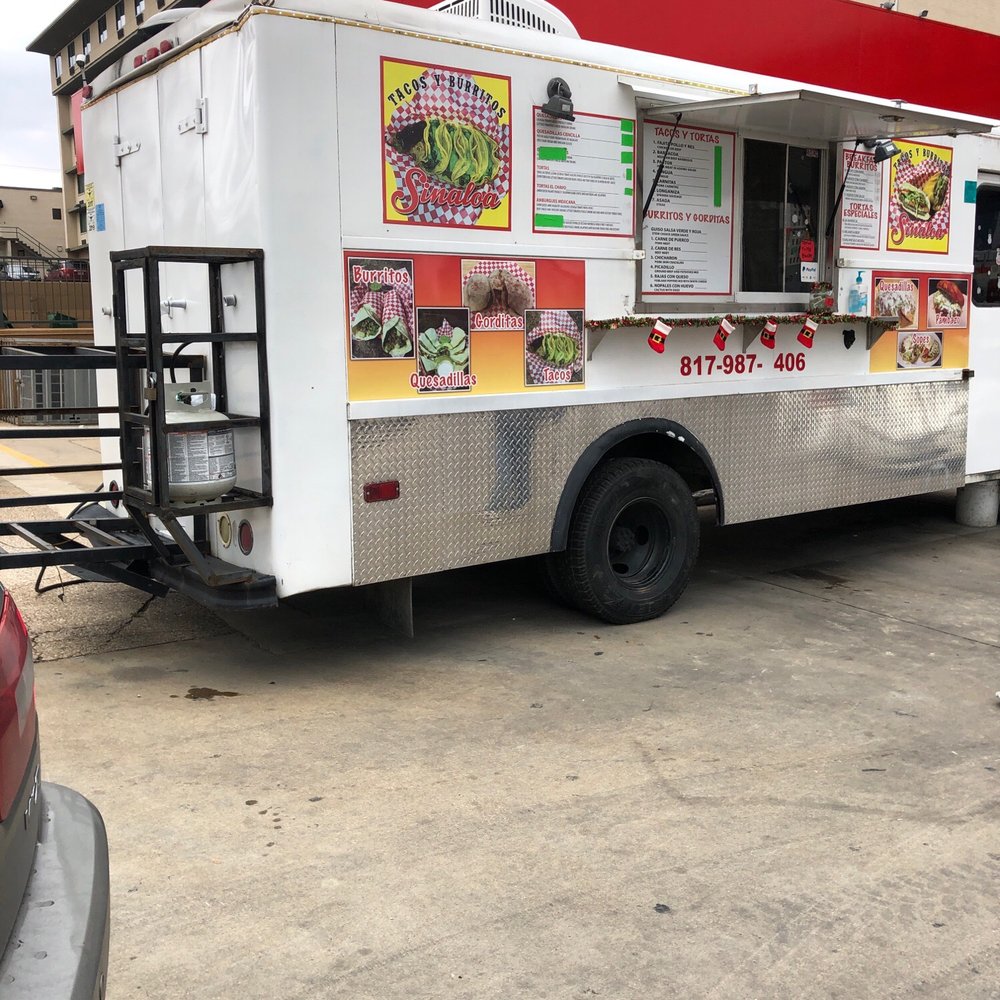.png)

November 5, 2025
Community, Neighboring

Rob James
Following Jesus means choosing the slow, risky, unmasked work of actually knowing people and being tacitly willing to be known by them.
Jacy and Landen had a secret.
By day, they were just like every student at Tarleton State University. They slept thirty minutes late and rushed even later to classes. But several nights a week, they disappeared into a secret, purple-clad underworld of voice-augmented campus freaks known as the Purple Poo, Texas's oldest spirit organization.
Students know them as the infectiously silly pranksters lurking around campus events. In fact, the Poo is one of the quintessential traditions that make TSU truly unique. What they might not know, however, is that every Poo’s identity is guarded by a black-op level of anonymity.
That’s right. Nobody knows the identity of the Poo while they’re students. Ever. And it’s not negotiable.

Landen tells me that maintaining secrecy as a social exercise was paradoxically exhilarating and exhausting. You see, as a Poo, you live at the epicenter of campus life yet completely anonymous within it, generating a sort of loneliness. “On one side of the door, we were Jacy and Landen. On the other side, we were Poo. And no one ever got to see both at once.”
When Landen and Jacy graduated, married, and moved to Fort Worth, they carried that experience with them. Consequently, they wanted to help create a neighborhood where people didn’t fade to the other side of their door but instead lived unmasked, knowing that they are loved by a God who loves that they’re venturing out on this side of the door.
Jacy and Landen's remaining college experience wasn't necessarily unique, but it was more literal than most. We all wear masks. And from behind them, we’ve created elaborate systems to interact without truly connecting.
Think about it. We don't walk into banks. We don't eat in restaurants, and if we do, we are rarely there connecting. Grocery stores, drug stores, book, toy, and shoe stores. Without ever taking off our pajamas, we can deposit a paycheck, get fitted for glasses, order a meal, pay our taxes, and maybe buy a car before the coffee is finished brewing.
Efficient? Yes. Lonely? Absolutely.
Fast forward to Jacy and Landen’s idyllic home in Wedgewood, a community lined with 75-year-old Live Oak trees that imbue the sesnse that something used to happen here. In fact, it did. In the early 1950’s, Wedgewood was envisioned by planners as the embodiment of the American Dream. Purposely designed around schools and lakes, the neighborhood once exploded with family life and activity.
.png)
To be sure, when the Miller’s moved in, the neighborhood still harbored life, but that life seemed to only exist behind the fourth wall … that fictional space protected by sidewalks, yards, and front porches. For Jacy and Landen, however, they knew that God was calling them to help break down those barriers. The big question? How …
Like all big dreams, they started with some simple ideas.
First they wanted to know the names of the fifteen people who lived on their street. With them, they envisioned sharing meals, learning stories, being known, and ultimately sharing the love of Christ. But when COVID arrived, it seemed like their chances of getting to know anyone evaporated. A neighborhood that already lacked activity, now featured emptied sidewalks and closed doors. Neighbors quickly learned about food delivery, telecommuting, and how to build a home. Month-by-month, their street became more isolated.
But instead of accepting that life after COVID meant living in permanent isolation, they decided to create something different.
"Something different" started when the couple asked God to help them love their neighbors well. Determined, they began viewing Wedgewood as a mission field right outside their door.
Then? Well, they booked a food truck.

But when the first truck canceled, they bought hot dogs and grilled right in the driveway. Determined, they made their own food truck!
Unexpectedly, fifteen neighbors showed up! For the first time in weeks, neighbors emerged from their houses and walked across driveways to meet each other. For the first time in years, people collected just to say hello. And this trend continued for months.
Along the way, Jacy and Landen learned about Sarah's work stress, Mike's recent divorce, and their lonely elderly neighbor’s challenges. More importantly, they discovered that behind every carefully maintained facade lived someone with dreams, fears, and stories worth hearing.
One night, they watched two women introduce themselves despite living one house apart for a decade. "That moment," Jacy said, "was when we knew this was working. That people really do want to be known for who they are."
But they didn't want the effort to be an occasional special event. Instead, they wanted authenticity and community to be part of the daily rhythm of their lives.
So they built a porch.
And before you say, “well, so what, everyone has a porch.” They built this porch, right in front of their house.
.png)
The porch they built wasn't about curb appeal or efficiency. It was, however, about creating a magnetic space that naturally invited authenticity.
A gentle, sloping ramp without stairs invites elderly neighbors. The porch also includes a wide gate and plenty of space to sit and talk. Jacy says that it’s not particularly beautiful, and that it wasn't designed to be photographed for social media. It was, however, designed to be lived on.
And slowly, the neighborhood has responded. Summer barbecues inspired winter soup nights. Coffee on Tuesday mornings, dessert after difficult conversations, and entertaining the random drop-by led Jacy and Landen to rediscover life in community without the common barriers that separate us.
Jacy and Landen have responded, too. They’ve entered a close relationship with their 94-year-old neighbor. They started picking up groceries for shut-ins, watching kids during emergencies, and showing up with casseroles during family crises. Another neighbor, once hidden behind her own doubts about the church, started dropping by for conversations about life and faith and have since attended church.
Christmas parties, sidewalk chats, late-night prayer requests have all been born from the simple decision to choose presence over performance, authenticity over anonymity.
Here’s the takeaway. Following Jesus means choosing the slow, risky, unmasked work of actually knowing people and being tacitly willing to be known by them.
You don't need to build a wraparound porch to accomplish the same goal. You just need to resist the magnetic pull of anonymity. Here’s how Jacy and Landen think you can do it.
In a world that promises connection through performance, efficiency through anonymity, and community through screens, it's risky, inefficient, irreplaceable authenticity that moves people into community.
Jacy and Landen discovered that when we remove our masks and engage with our world, we don't just reveal ourselves … we reveal a God who has always loved us unmasked.
And maybe, just maybe, that's exactly what your neighbors are waiting to see.